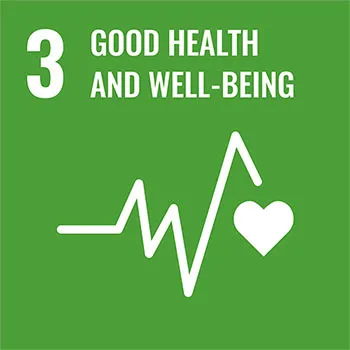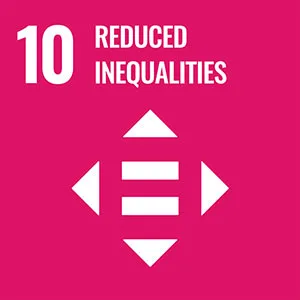MSc Data-driven Health
The master’s programme in Data-driven Health trains future leaders at the intersection of health and data science. You will gain technical skills in data processing and machine learning and expertise in health systems and systems biology. Graduates are equipped to transform vast health data into actionable insights that improve patient outcomes, transform healthcare systems, and enable personalised medicine.

Data-driven Health at KTH
The master's programme in Data-driven Health provides expert knowledge on how data can be used to change and streamline healthcare and improve people's health. The focus is on utilising health data from healthcare, self-generated data, community data, and other sources in the analysis. You will explore different ways of processing, storing, modelling and analysing data to put data-driven insights into a complex context. You will understand the different types of data, how it is structured, and how to adapt it for effective analysis. You will learn to develop predictive models for diagnostics and disease progression, personalise treatment strategies using patient data, and support system improvement and clinical decision-making through advanced analytics.
During your studies, you will work with real cases, for example, by analysing data on different diseases and looking at young people's mental health. You will also gain valuable insights into healthcare organisations to prepare you for your future career.
The master's programme offers plenty of opportunities to specialise through project and elective courses. Elective courses focus on imaging, distributed learning and advanced topics. Project courses allow you to work with faculty and clinicians on applied projects covering sports, physiology and health systems. Courses integrate technical skills with real-world health challenges, such as risk stratification, prognostic modelling, health data harmonization and developing data systems for privacy-aware federated learning. During the first year, you take mandatory courses in Statistics, Machine Learning, Databases and Warehouses, Ethics and Socio-Cultural Perspectives on Technology. The second year is dedicated to project courses, advanced topics in different areas and the master's degree project.
The programme emphasises complementary skills such as problem-solving, teamwork, and project management, aligned with CDIO principles. You will have access to in-house cloud infrastructure, makerspaces and datasets. Most courses also offer project assignments to complement traditional lectures. The programme is heavily focused on applying advanced data tools in actual practice.
The programme combines technical skills with insights into the legal, ethical, and socio-cultural aspects of health data. The research at KTH complements the programme and covers all aspects of data-driven health, from semantic engineering to FAIR data management to applied data analysis and data engineering, machine learning, and artificial intelligence. The curriculum provides a highly interdisciplinary approach, enabling students to acquire a unique expertise that appeals to many employers.
This is a two-year programme (120 ECTS credits) in English. Graduates are awarded the degree of Master of Science. The programme is mainly offered at the KTH Flemingsberg campus in Stockholm by the School of Engineering Sciences in Chemistry, Biotechnology and Health (at KTH).
Future and career
Graduates uniquely bridge the worlds of data science and healthcare, making them highly sought after in industry, research, and the public sector. They drive innovations in digital health, health informatics, data systems, health analytics, and health technology entrepreneurship. This area is rapidly expanding worldwide, providing graduates with career opportunities in various fields, such as engineering, analysis, data science, research, journalism and consulting. A degree from the programme will also open doors to an academic career and further doctoral studies.
Sustainable development
Graduates from KTH have the knowledge and tools for moving society in a more sustainable direction, as sustainable development is an integral part of all programmes. The three key sustainable development goals addressed by the master's programme in Best Practice are:



In the programme, you’ll learn and apply health data to improve people’s health and healthcare systems and provide equitable access to health for all. Courses on legal and ethical aspects, socio-cultural perspectives, and privacy and security balance the technological topics. The acquired knowledge is applied to designing innovative data systems that enable access to health data, improve health literacy, and develop data systems and models that can cure diseases and improve health.
Research and faculty
The programme is provided mainly at the KTH Flemingsberg campus with courses provided by KTH's Department of Biomedical Engineering and Health Systems . The department spans from cellular and molecular levels to complex systems and the broader subject fields of health, environment, and materials. Research is conducted in Biomedical Imaging, Health Informatics and Logistics, Neuronic Engineering and Ergonomics. The department's teaching staff have extensive experience working with a student-centred and student-active pedagogy, where intractable problems are the focus. Students benefit from KTH’s dedicated software makerspace and cloud computing resources, enabling hands-on work with large-scale health datasets and advanced machine learning experiments, skills that are essential for careers in modern health tech. The programme has close links and collaborations with large parts of the healthcare system in Stockholm and Sweden, as well as with government and industry.


